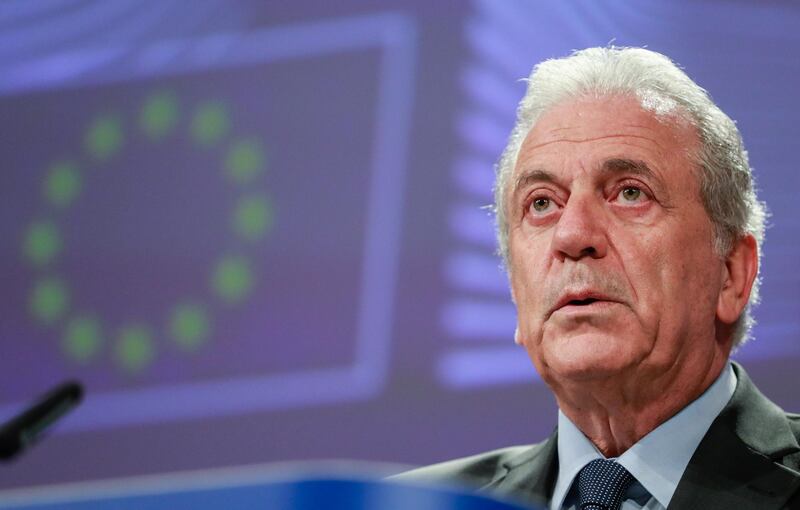The European Commission proposed on Tuesday to set aside those elements of the European Agenda on Migration that had encountered opposition while moving ahead with reforms targeting refugee movements.
Presenting a progress report at the Commission’s general headquarters in Brussels, Migration Commissioner Dimitris Avramopoulos said that five out of seven initial proposals made by the Commissions are ready for approval.
“Four years on, we are better equipped than ever to protect our external borders and address migratory challenges inside and outside the EU. The time has come to consolidate the remaining building blocks of a comprehensive migration, borders and asylum system for the long run,” he said.
"A constantly evolving geopolitical context shows us that we cannot wait to react, but that we have to be ready for the future already now."
The European Agenda on Migration was instituted in May 2015 as part of an attempt by the European Commission to propose a far-reaching strategy that would tackle the challenges of the ongoing crisis.
_______________________
Read more:
UN 'concerned' over 12 migrants stranded in Mediterranean
Spain far-right party set to gain first parliamentary seat in Andalusia
Italy’s populists abolish residence permits on humanitarian grounds
_______________________
The items ready for approval include a reform of the asylum system to ensure that applicants have the same chance of getting asylum under the same conditions wherever they apply in the EU.
“New rules on who qualifies on asylum will take away the incentive for people to go asylum shopping,” Mr Avramopoulos said.
Reforms also include the length of storage of migrants’ personal data, which would be pushed up from 18 months to 5 years.
Mr Avramopoulos said that the reforms will respond to the demands of the over 80 per cent of European citizens who would like to see the EU better protecting its borders from illegal migration fluxes. “We cannot ignore the Europeans’ opinion,” he said.
One of the points that have yet to be resolved is the reform of the Dublin regulation, which puts the responsibility for processing a migrant’s asylum request on the member state through which the asylum seeker first entered the EU.
European institutions have spent over two years trying to agree on reforms that would help improve the regulation. The debate has been super-charged by the rise to power of Italy’s populist government, which used the regulation to fuel Euro-scepticism.
The European establishment now fears that the absence of reform on matters of immigration will threaten the future of the Schengen free-movement area. But talks on the Dublin system have been hampered by the lack of an alternative to better distribute migrants within the EU. A temporary scheme attempt to introduce a quota system for sharing out arrivals in 2015 failed after Eastern European countries – Hungary at the forefront – refused to adhere to this measure.
Mr Avramopoulos said the ratification of the five reforms would pave the way for the approval of the remaining measures and expressed confidence that a deal on the Dublin regulation will be reached by 2019.
The EU Commissioner also made a last-ditch attempt to persuade member states to join an intergovernmental conference in Morocco next week that is increasingly being deserted due to criticism of the UN-led global compact on migration.
“I make a last call on them to reconsider their position,” Mr Avramopoulos.
When asked why an increasing number of countries are pulling out of the talks, the Commissioner refused the idea that the non-binding agreement may be disadvantageous to those countries who wish to curb migratory flows.
The compact is not an invitation to migration as some have said, the Commissioner said. “Something is wrong not with the compact, but with the way some political parties understand it,” he said.






